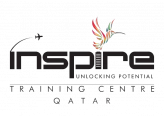Course Description:
This course presents basic financial accounting concepts and explains how they apply to the hospitality industry.
Objectives: At the completion of this course, students should be able to:
1. Describe the accounting process and the roles that accountants play in collecting and
presenting financial information.
2. Define the major classifications of accounts (assets, liabilities, equity, revenue, and expenses)
and describe specific accounts found within each classification.
3. Understand the correct application of debits and credits in analyzing business transactions
for a variety of accounting situations.
4. Discuss the basis of the double-entry accounting system and identify then ormal balances of
the various types of accounts.
5. Describe the posting, journalizing, and closing processes.
6. Identify the purposes and characteristics of specialized journals and subsidiary ledgers.
7. Discuss the advantages and disadvantages of the sole proprietorship, the partnership,the
limited liability company, the corporation, and the Scorporation, and describe and compare
accounting procedures for each.
8. Discuss generally accepted accounting principles and explain the usefulness of each.
9. Distinguish between cash basis accounting and accrual accounting.
10. List procedures that help ensure internal control of a firm’s cash.
11. Discuss how hospitality firms account for bad debt losses.
12. Describe accounting procedures involved in notes receivable and notes payable.
13. Discuss methods of controlling and accounting for inventory.
14. Identify and define the major classifications of adjusting entries and reversing entries.
15. Define ten steps of the accounting cycle.
16. Describe the balance sheet, the income statement, the statement of owners’ equity, the
statement of retained earnings, and the statement of cash flows, and discuss the purposes of
each.
17. Identify the uniform systems of accounts relevant to the hospitality industry.
18. Explain the purposes of footnotes to financial statements.
19. Identify and describe commonly useddepreciation methods.
20. Describe accounting procedures used for property, equipment, intangible assets, and other
assets
21. Describe procedures used to account for current liabilities and payroll.
22. Describe procedures used to account for bonds, leases, and mortgages payable.
23. Explain why hospitality firms invest in the securities of other companies, and discuss accounting
for investments.24.Identify the kinds of information obtained through vertical and horizontal
analyses of comparative balance sheets and comparative income statements.
25. Explain ratio analysis and the purposes that it serves for managers, creditors, and investors.
26. Identify and define five classes of ratios and explain their significance.









